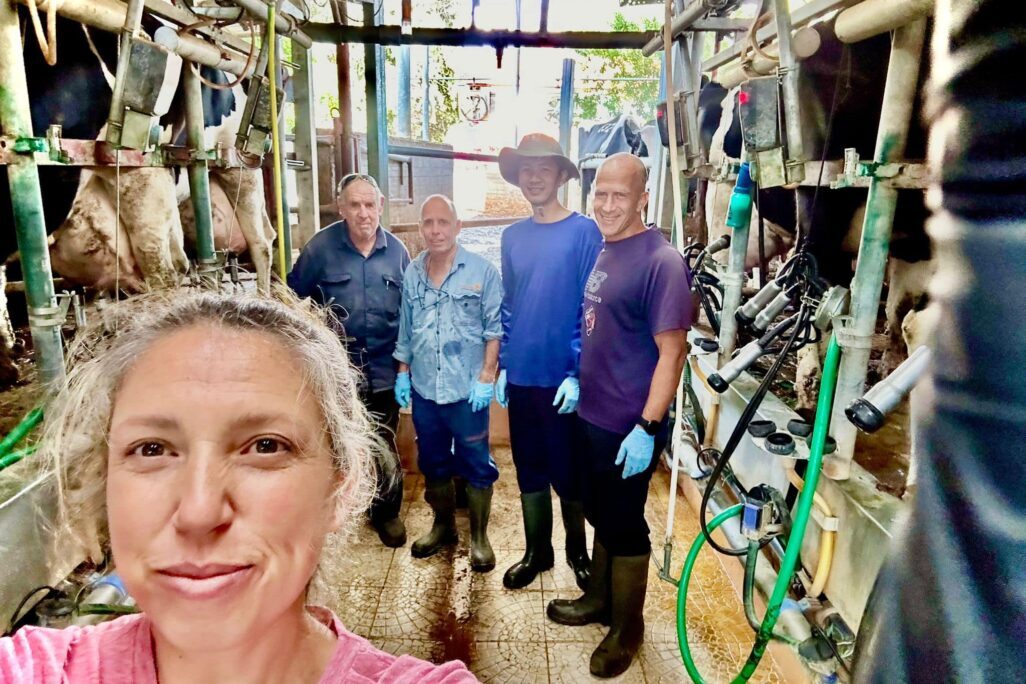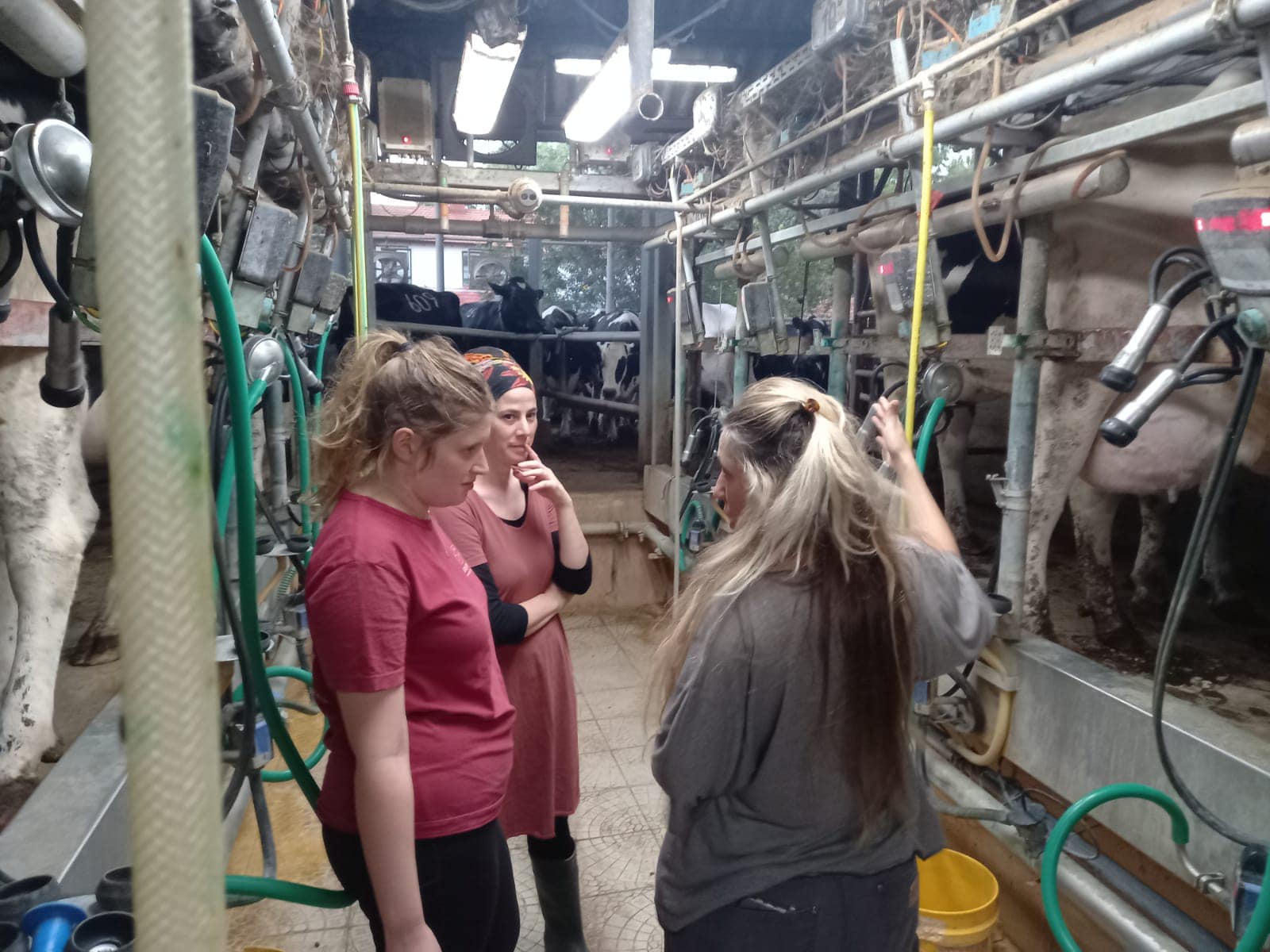
In recent weeks, Sarit Yoker's small family refet (dairy farm) in Nahalal has become a training center for volunteers who want to work in the cowsheds in the Gaza envelope region. "I heard that there are many people who want to volunteer, but are not familiar with working in the refet and have no training, and I realized that I can help them come more prepared,” she told Davar.
In normal times, Yoker manages the cowshed at the WIZO Nahalal Youth Village. At the same time, she and her husband Arnon, a fourth-generation resident of Nahalal, work in the small family dairy farm that belongs to his parents. Arnon was drafted at the beginning of the war, and since then she has been alone at home with her two young daughters, juggling the tasks in the family cowshed and the youth village cowshed.
From the moment the war began, the cowsheds in the Gaza envelope faced a sudden and significant shortage of manpower, which was compounded by the physical damage to the cowsheds, the injuries of the cows themselves, and the difficulty of staying in the area during the fighting. Many Thai agricultural workers in the envelope were kidnapped or murdered in the October 7 attacks, and many others decided to return to their country, at least for now. Like other branches of agriculture, the situation has created a serious challenge for the sector in relation to the basic ability to maintain the farms.
"Dairy farmers from all over the country started volunteering, because there were almost no workers," Yoker said, explaining that in the early days, veteran dairy farmers with much experience and knowledge came to help.
"They were looking for people who know how to operate a cowshed, because it's hard to train someone inexperienced on the spot," she said, adding that due to the lack of manpower, "it was clear that there would be a need for many volunteers for a long time."
"You realize that it's not just technical work – you have to feel the cow"
Yoker wanted to participate herself in milking efforts near the Gaza Strip, but this was not possible due to the need to continue her work at the youth village and in the family cowshed, as well as take care of her daughters.
"I found myself helpless," she said. "[I was] so eager to help the cows in the Gaza envelope, but I couldn't leave everything."

She decided to use her experience and skills in agricultural education to train inexperienced workers. "I identified a difficult challenge, a challenge in recruiting volunteers for southern cowsheds. So I initiated exposure and training to the industry for people who want to volunteer in the envelope. I started teaching from the basics,” she explained.
The training takes place at Yoker’s family dairy farm. The volunteers come for evening milking, and receive personal training for several hours.
"The training makes it more tangible for the volunteers – getting to know the animal itself, its size and how to deal with it,” Yoker said. “I also invite those who want to see if it's right for them. As far as I'm concerned, even those who decide in the end that it's not for them have gained something. There is power in physically coming to the cowshed, you understand that it's not just technical work. You have to feel the cow."
Yoker speaks about the need to translate professional knowledge, including that which is considered basic for those with experience in the area.
"People come in who have no idea, and you have to teach them how to put on their boots, how to wash [the cows], how to hold the sprayer,” she said, describing the different stages of work that volunteers are required to know, such as moving the cows and operating the milking machine.
Yoker says that along with the professional dimension, getting to know a dairy farmer gives people confidence. She proudly talks about the results that are starting to emerge: "Yesterday we hosted two wonderful volunteers who are contributing, and soon they will go down to the cowsheds in the south to help."
Yoker is also busy spreading the knowledge to other circles. Together with Sivan Lacker, a veterinarian who specializes in conscious dairy farming and cow welfare, she prepares instructional videos that will be uploaded to YouTube for volunteers who are not able to attend the physical training sessions.
"I am filled with satisfaction and joy at the opportunity to pass on my knowledge, which indirectly reaches the cows and the [volunteer] teams," she says. "These trainings have many implications."
Among other things, she talks about a change in the attitude towards imports among the volunteers, and a sharpening of the need for local agricultural produce: "People now understand the importance of independent labor."
This article was translated from Hebrew by Benji Sharp.






